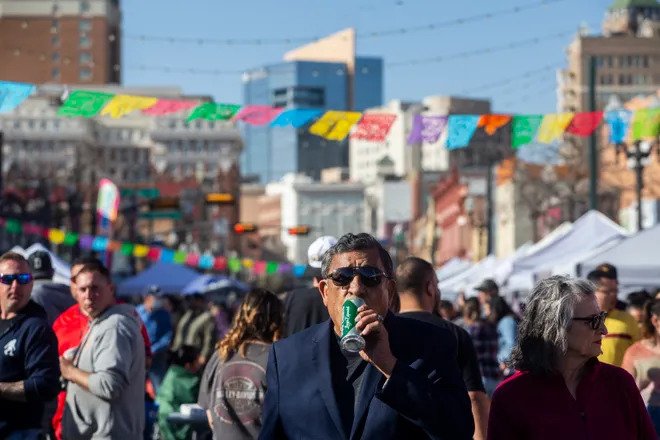Photo credit: Omar Ornelas/El Paso Times
Media Contact: Ricardo Samaniego | El Paso County Judge
Few events are more inspiring than when an immigrant takes their oath to become a citizen. As someone born and raised in El Paso, I will always remember the day that my father, Salvador Samaniego, officially became a United States citizen at the age of 58. Growing up, I knew that as proud as he was to reside in the United States, he didn’t feel entitled to be able to consider himself a Mexican American until he finally took his oath. It was a very important milestone for my father as he worked hard to achieve the American dream for his family.
Over 60,000 permanent residents are currently eligible for naturalization in El Paso alone. And out of the nine million eligible permanent residents nationwide, less than 10% are naturalized annually.
Why wouldn’t people naturalize when there are so many financial benefits and political power as individuals and economic power as a country? Through naturalization, immigrants can more easily have their voices heard, represented, and guaranteed equal opportunities and protection under the law. Naturalized citizens have a larger pool of employers and often access higher-paying jobs that could raise their income up to 11%. This puts more money in their hands and increases their spending power, including buying homes.
With increased purchasing power and civic engagement, our residents are more likely to invest in our community, open new businesses, and bring more jobs. This will revitalize our economy, bringing billions of dollars through tax revenues from federal, state, and city taxes. As our economy continues to struggle with the pandemic, the funds could be substantial for our post-economic recovery, including investments in El Paso infrastructure, education, and public health.
When I speak to folks and they tell me their reasons for why they haven’t taken the step to naturalize, one of the main reasons is the language barrier.
In El Paso, almost 69% of people speak a language other than English at home. Many immigrants find it difficult to study the U.S. Constitution and further government details in English and, as a result, fear taking the citizenship test. But the barriers do not end there. The high application costs and the lack of knowledge on the naturalization process are also deterrents to citizenship. Some immigrants, for example, are not aware of application fee waivers. This information is vital for low-income families.

